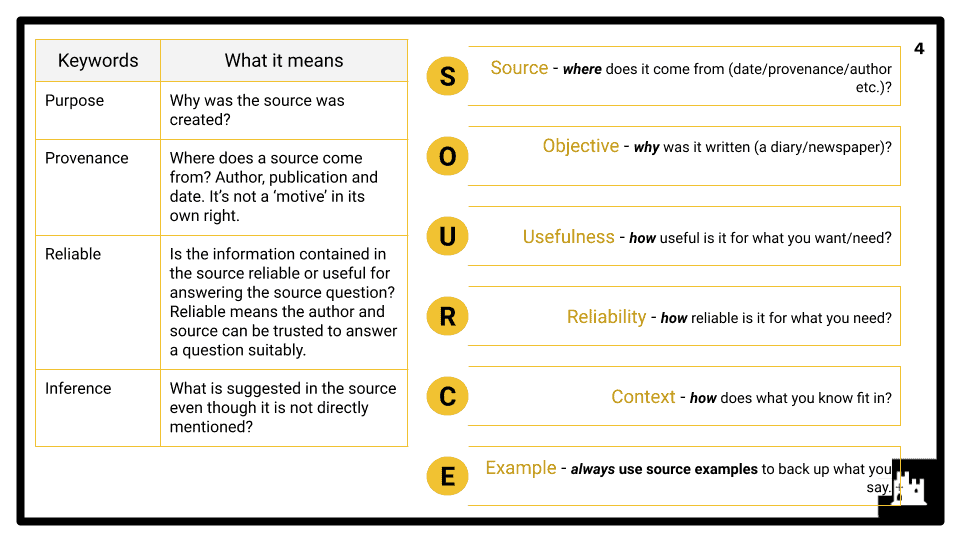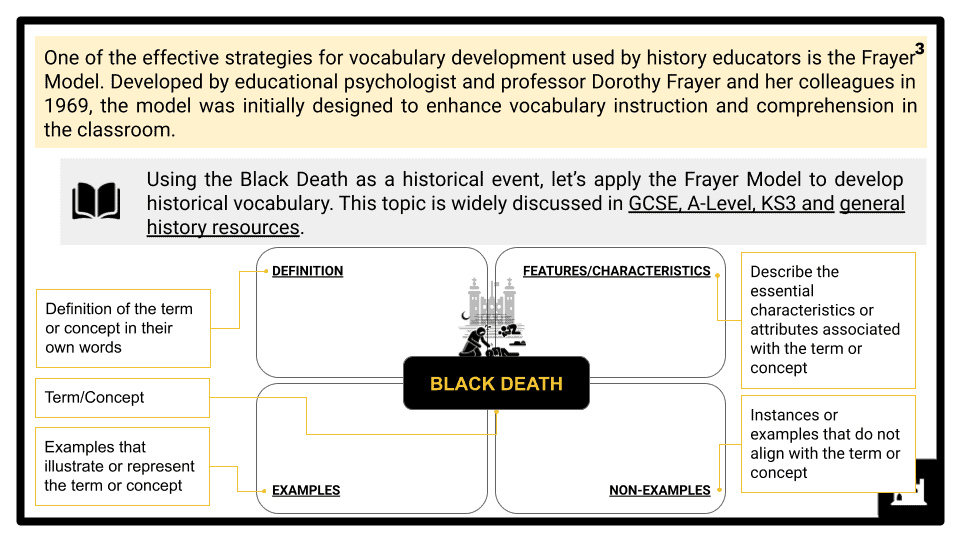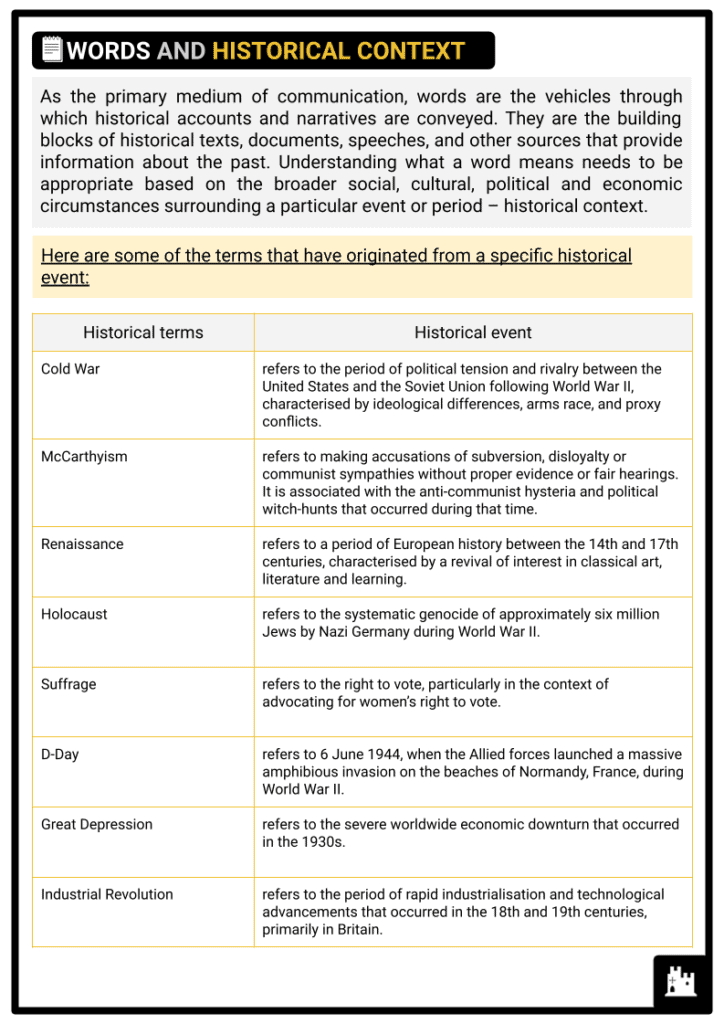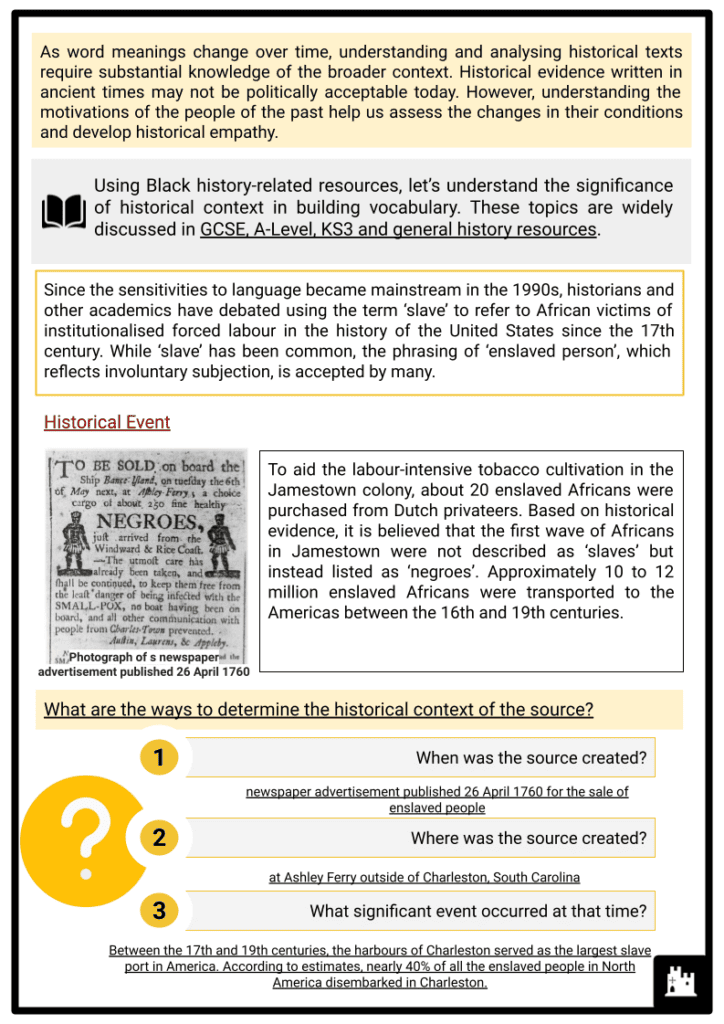Download Historical Key Skills: Building Historical Vocabulary
Do you want to save dozens of hours in time? Get your evenings and weekends back?
Our worksheet bundle includes a presentation and printable worksheets. Perfect for both the classroom and homeschooling!
Building Historical Vocabulary
This resource covers the concept of HISTORICAL VOCABULARY as used in several topics, including
- The Black Death
- Black History
- French Revolution
- Industrial Revolution
- Agricultural Revolution
- Declaration of Independence
- Cold War
- Cuban Missile Crisis
Excerpt
Studying history is about more than memorising names and dates. Our comprehension of texts is crucial to understanding what we are learning. For history, this means articles, books and exams. In 2018, the Oxford Language Report revealed a significant word gap in UK schools that affected students’ primary and secondary learning. To bridge this gap, here’s a resource to help us out.
First, what is the word gap in learning history?
The word gap, typically associated with language development disparities, also manifests in history learning. Historical literacy entails a strong command of vocabulary, comprehension skills, and critical thinking abilities. However, due to limited exposure to historical language and concepts, some students need help understanding and engaging with historical texts.
LEARNING OBJECTIVES
At the end of the module, students should be able to:
- Understand the significance of bridging the word gap in studying history;
- Be familiar with some of the most common historical vocabulary; and
- Evaluate the importance of having a rich historical vocabulary.
RESOURCE CONTENT
- Understanding Word Gaps
- What is the word gap in learning history?
- What are the implications of the word gap in learning history?
- How can we bridge the word gap in learning history?
- Words and Historical Context
- Glossary of Historical Terms
- Source Works: GCSE & A LEVEL
- Practice Assessment




